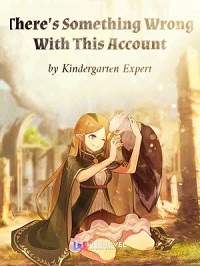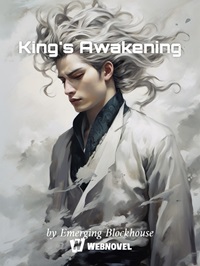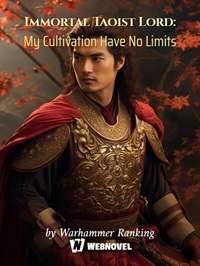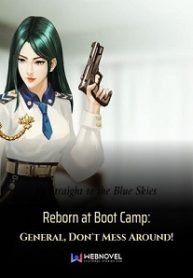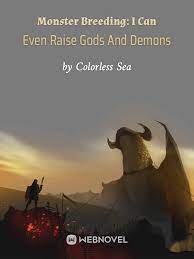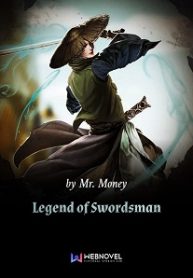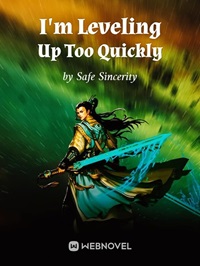Peculiar Soul - Chapter 11: A Poet's Dream
Chapter 11: A Poet’s Dream
Today we embark on a grand undertaking. Throughout history, man has viewed souls as instruments of fate – blessings, curses, miracles. It is my hope that future generations will mark today as the day when souls became the instruments of man.
Let us not shrink from this purpose. We all have souls, we all know the manner of their business. They trade in power and suffering, potential and consequence. So must we.
– Inaugural Address to the Institute Board, 651
Stepping outside of the butcher shop was, somehow, the most surreal moment of Michael’s day so far. It was mid-day, hot and clear with the faintest hint of a breeze trickling through the streets. Idyll in front and incomprehensible death behind.
The apparent normalcy of the village did nothing to dispel the images still fresh in his mind. Leon’s death had been quick and brutal, but the other four – his soul trembled in an echo of the vision he had seen, of the luminous souls Jeorg had freed from mortal confinement and cast back into the river.
It had been a profound experience, indelible in his memory. Frustrating, too, for all that he had yet to comprehend. He stood beside the door to the shop in mute contemplation until Jeorg emerged to touch him on the shoulder.
“Come,” Jeorg said. “Time to walk back home.” His voice was tired and quiet, lacking its normal clarity – burdened, underneath the words he spoke, with the admission that this would be their last visit to his clearing.
It was time to go.
Michael followed Jeorg quietly. They walked back out of Varneck and onto the common road with only the wind and birds voicing their opinions. Michael had questions, of course, but none of them seemed adequate to the moment.
“I saw their souls,” he said instead, speaking as they entered the shaded canopy of the wood. “When you came in and – stopped those men.”
“When I killed those men,” Jeorg said. “Do not hide behind euphemism. Some things should not be palatable. Speak honestly. If you can’t bear to say what you’ve done, change your actions before your words.” He paused, then shook his head. “You said you saw their souls? More than just usual sight?”
“After they were – dead,” Michael said, “I saw their souls as if they were part of the river. Shining lights. They were still for a moment, as if waiting; after that they went upward and vanished.”
Jeorg raised an eyebrow. “Did they, now,” he muttered. “Interesting. Do you know what that means?”
“Um,” Michael said. “No. I didn’t feel like I could interact with them. I’m still missing something important.” He bit his lip, struggling to put the experience into words. “I’m not sure. There was a lot happening at once.”
Michael looked at Jeorg. “What does it mean?” he asked.
The old man didn’t reply; instead, a smile crept across his face. “Ah,” he said. “Long past the time I should have left here. I’ve become too comfortable, too familiar. Only the occasional young guest to trouble me. Been many years since the last time someone asked me a question I couldn’t answer.”
“I don’t know what it means,” Jeorg said, chuckling. “Far too long since I’ve been able to say that.” He shook his head, then stretched his arms up with a grin.
“I’m glad you’re feeling so good about it,” Michael said, unable to keep a smile from his own lips at Jeorg’s enthusiasm. “But where does that leave us?”
Jeorg let his arms drop to his sides. “In the best possible place,” he said. “This is where we step off the road to walk rare and dangerous paths. We are about to disappear.”
Michael paused in his packing and looked up, wide-eyed. “I’m sorry,” he said. “Mendian? Even if we could get across the ocean, they don’t let foreigners in.”
“Mendian!” Jeorg confirmed. “By way of Esrou. Friend of mine there. She won’t be happy with us bringing trouble to her door – but I have a favor to call in.”
“I suppose that addresses my question of what you were going to do about their closed border,” Michael said dryly. “But what about our closed border? Surely the Institute will have men at all the likely ports, once they learn of their team’s disappearance.”
Jeorg waved a hand dismissively. “Once they learn,” he said. “Will take some time, days at least. Long enough for us to get to the bay, board a ship. We’ll be in the Mendiko Strait by the time they realize anything has happened.”
“They wouldn’t follow us there?” Michael asked, holding up a shirt – his original shirt that he had arrived in, looking worn and ragged. The physical demands of Jeorg’s farm had long-ago rendered it somewhat tight in the chest and arms. He set it aside, putting the rest of his few possessions into the knapsack and cinching it shut. “The Institute has shown itself willing to play loose with the law.”
“Within Ardalt, that is the case.” Jeorg smiled, picking up the small figurine of a woman in Mendiko clothing from the chest of drawers. “Mendian is a different matter. Protection of traffic in the strait is one of their Guarantees. There are factions in their council that chafe under their law of neutrality; they would pursue any breach of the Guarantees to put Ardalt in its place. Even Spark won’t risk Mendiko intervention in the War.”
Jeorg straightened up, drawing his own knapsack closed. “Come now. Plenty of time to talk on the road. We’ll take the south-west road, find a ship at Maiburg. Usually one or two in a given day that takes a continental course.”
“You know this offhand?” Michael asked, pushing down his irritation at Jeorg’s evasive change of topic. That he was right only worsened the annoyance.
Jeorg managed a smile. “I have been a fugitive for a very long time,” he said. “I keep an eye on these things.” He cast a glance around the room, eyes straying here and there – then something changed in his face, and he looked back at Michael. “We should be off.”
Michael looked at Jeorg’s knapsack, which held even less than his own. “You don’t want anything else?” he asked. “I know you can’t take it all with you, but even so…”
“They’re just things,” Jeorg said, glancing once more at the Mendiko figurine. “Their value is in what they make you feel. The memories they bring. Just like the mind guides the soul, the object gives the mind a cue to see and feel – to remember. But – only a cue.” He smiled again, a real smile, and clapped a hand on Michael’s shoulder. They walked out of the house and looked around the clearing.
The trees swayed gently in the summer breeze, rustling leaves paired with droning insects and birdsong. Crops grew in their plots and the beginnings of fruit hid in green camouflage amid the leaves of the orchard and the great tree that loomed over Jeorg’s house. Michael looked up at its branches for a long moment.
“It seems sad,” Michael said, “to imagine all of this empty.”
Jeorg snorted. “The garden will be fine without me,” he said. “The vines will grow as they please, and the trees never needed my meddling. This place will be beautiful in one year or ten, or one-hundred. It will change, but that is only life.”
“I envy your equanimity,” Michael sighed. “I’ve only stayed here these few months and already-”
He stopped, words seeming inadequate to render the form of what he felt. There was a tightness in his chest that for once had nothing to do with his soul. The wind gusted and brought the lingering smell of flowers to him, of moss and dirt and mulch. Jeorg’s hand came once again to his shoulder, more gently than before.
“Just a cue,” Jeorg said. “Its absence does not rob you of memory, or of feeling. What it makes you feel is contained in your mind.” He squeezed once, then stepped back. “It isn’t easy when you’re young. Old men like me have had many gardens, of one sort or another. Many things that now exist only in memory. They are all with me, wherever I go – and, now, we go once more.”
Jeorg turned and walked towards the path leading toward the road without a backwards glance. After a lingering moment, Michael followed.

It was well past midday by the time they arrived on the common road and set out, heading past the crossroads to Varneck and onto the more-traveled route that led them southwest to the bay shore. The change of road did more to cement the reality of the situation in Michael’s mind than anything thus far; this was new ground.
The woods faded into scrubland as they drew nearer to the bay itself. The air was muggy with a brackish scent; Michael’s shirt was quickly soaked with sweat as the shade of the trees fell behind them. The view was pretty, at least, the Iron Bay sparkling with the cool luster of its namesake.
Jeorg seemed strangely unaffected by the heat, although Michael was uncertain if it was a consequence of the soul he bore or just his manner. The old man took pity on him after a few hours of rapid hiking, stopping in a shady curve of the road to drink from a canteen and stretch his back.
“Hot day,” Jeorg observed.
Michael gave him a sour look. “You seem to be doing all right,” he said. “If you say that your soul renders you immune to the heat, then I would submit that yours is the greatest of all the Eight.”
“We all have our specialties,” Jeorg said, his eyes twinkling. “That is not one of mine. Not likely to meet a lucigens until the end of our journey.”
“Shame, a Freezer would come in handy,” Michael panted. “Do they call them that in Mendian? Seems like it would be odd for them to use Institute classifications.”
Jeorg waggled his fingers. “You have it reversed,” he said. “The Institute uses Mendiko classifications. Not something they’d admit to now. Ardan animetry owes much to Mendian.”
“Huh, I had no idea,” Michael said. “I didn’t think Mendian shared their knowledge with outsiders.”
“Mendian may not, as a matter of neutrality,” Jeorg replied. “Certain individuals bend those rules, in extenuating circumstances. The Institute managed…” There was a long pause, long enough that Michael thought he might have finished talking. However, something changed in the set of Jeorg’s shoulders and he continued to speak.
“I was eight when the War started,” he said. “Twelve when Ardalt joined. It wasn’t such a serious thing, back then. Esrou and Dey were still strong, Daressa was unified. The fighting was mostly in occupied Talait, as it had fallen so quickly.” Jeorg shook his head. “It was all very far away. The fastest news came by Ember steamer, which had just started to supplant sail. Nobody paid much attention, and life in Ardalt went on much as it had.”
Michael nodded, thinking. Men who remembered the pre-War times were rare and growing rarer still. Even Ricard had professed no memory of times before the War, as he had been born only a few years prior to its commencement. Michael had read pieces in the paper or in books that detailed the state of the antebellum world, but Jeorg was the first person he had met who had truly lived in it.
“I was a journalist,” Jeorg said, turning his head back with a smile to catch Michael’s incredulous reaction. “I was! I wrote articles on everything – politics, finance, sport. I hated the War, though. We didn’t even call it that, twenty years in – it was just the ‘ongoing conflict on the continent’ or ‘the Safid aggression’ if we were pressed for space, never mind that they were technically the invaded party.”
“It wasn’t until the Deyan government negotiated a separate peace and withdrew from the fighting that I realized why I hated it so much.” Jeorg’s voice took on a rasp, and his tread fell more heavily as he walked. “We were losing. Whenever I read those long, cool lists of facts, dates and places and names of dead men – the path they described did not have a happy end. Saf was just so strong, and so driven by their violent fanaticism.”
“So I began to write about the War, and War is what I called it. No talk of conflict or aggression, I named it what it was. They put in the first telegraph cable to the continent that year, and I haunted the news desk to devour every scrap that came in.” He hunched forward, and for the first time Michael could see the dark stain of sweat on his shirt.
“It caused a stir, as I had hoped. People read the articles and became agitated, clamored for change. Demanded to know why the Assembly wasn’t acting – so they acted, and within a few months I had been fired.” Jeorg chuckled darkly. “The problem had been solved, as far as they were concerned. The papers went back to writing dry stories of far-away conflict.”
“Those were not happy years. I still read the news as it came in, the real news. I wasn’t alone. There were others who came together to discuss it, to write and publish what we saw even if the papers weren’t willing. We would sit and drink too much, run around at night to nail our articles to doors and stuff them into letterboxes.”
“Nothing worked. The country went on as it had. We were ignored, save for harassment from the constabulary. At the end of it I was alone and watching the world slowly bend itself into a shape I didn’t recognize. Despairing that anything could be done. Drunk, hopeless, full of words and spite and impotent will.” Jeorg turned once more to look at Michael, and the look in his eyes spoke volumes.
“Stanza,” Michael said. “That’s when you were ensouled.”
“Just so. It was – chaotic. A suddenly-empowered depressive drunkard with grudges against half of Calmharbor,” Jeorg said wryly. “Let us say that my old paper had to find a new office that same year, and I had a very serious conversation with the military.”
He paused to take a drink of water. Michael noticed that his earlier signs of strain had vanished, the dark sweat no longer spotting his shirt. He looked as he ever had, out for a pleasant walk in the summer sun.
“Ah,” Jeorg said, stowing his water once more. “So, you must remember that this was before the Institute. Classification of nascent souls was a much more speculative thing in those days. The most that they could tell was that I was a problem they had no ability to address, so they contacted those who could.”
“Mendian,” Michael said, frowning. “And they agreed? That seems like a blatant violation of their neutrality.”
Jeorg laughed. “Of course it was! But neutrality is a nuanced thing. It only works when the Safid are checked by the other countries on the continent, and Mendian could read the reports from the front as well as I. It was in their interest to use Ardalt as a dagger against the Safid, and so I found myself spirited away to Goitxea on an unmarked steamer.”
“They taught you how to use your soul,” Michael said.
“Mendian did nothing but permit me entry,” Jeorg said, laying a finger against his nose. “But as it happens, my host was one of their foremost experts on the soul. If she happened to teach me a few things in the course of my stay, that could hardly be considered intervention by the Mendiko council.”
Michael tilted his head. “Your friend,” he guessed. “The one you think can get us across the border.”
“Leire Gabarain,” Jeorg confirmed, wearing an odd little grin. “A brilliant woman, in many ways. She took me in, taught me how to use my soul constructively. They do not diminish the role of the bonifex in Mendian, and that is essentially what I am – only without most of their limitations. It was well-studied, and I met with several to talk with them and hear their experiences. But more than that-”
Jeorg’s smile died, and his voice lost the animation that had crept into it as he spoke. “I saw a dream. Lived it. A society that molded itself to nurture souls. Develop them. Help them make wonderful things. I saw that, when I was there.” Jeorg’s eyes flashed. “And then I came back.”
Michael’s eyes widened, and Jeorg gave him a grim nod. “I came back to Ardalt as an ensouled in full command of my power. The military were waiting for me. They asked me if I had learned anything that could help the war. I told them how to win it. A grand undertaking, to make Ardalt fertile soil for souls.”
“The Institute,” Michael breathed. “You gave them the idea?”
Jeorg held his chin up. “I founded it. I led it for years. Worked to make Ardalt into a mirror for my dream.”
For a moment, Michael saw the reflections flash in Jeorg’s eyes once more, saw the glimmer of the man who had walked into a butcher’s shop earlier that morning and commanded four men to die – then it was past, and there was only Jeorg.
“What happened?” Michael asked.
Jeorg shook his head. “Same thing that happens to every dream,” he said gruffly. “I woke up.”
Michael received no further answers to his questions that day; talk of the past had put Jeorg into a foul mood. It was likely that the loss of his home and farm were having more of an impact than the old man pretended, in Michael’s estimation, but he was not about to exacerbate the issue by bringing it up. He could scarcely cast blame. In calmer times Jeorg would have been the first to admit that it was easier to give good advice than follow it.
Instead, he succumbed to the silence and walked. Walked and thought. They made it more than halfway to the port before the light faded and Jeorg steered them off the road into a small copse. There were no games with the foliage this time, it parted for them like a wave and returned as if undisturbed after they had passed.
A short distance later they arrived in a clearing, obscured from view partially by nature and the rest of the way by a subtle thickening of the undergrowth that Jeorg arranged along one side.
As the sky deepened to black, they sat in the still-warm night air and ate some of the salted pork they had brought – bounty from their hunt weeks ago, though it seemed like longer still. They had left plenty in the smokehouse, as there was too much to carry. Michael felt another pang as he thought about it – not merely the food, but the trees, the crops, the wine. The collection of unfinished threads that had been abandoned and scattered by their departure.
It struck him as wrong, at a fundamental level. It was too much like that empty void, the cessation of purpose. If the process, the purpose of those things were what defined man’s mind, as Jeorg had claimed, severing them was entirely too close to death for Michael’s comfort.
Jeorg slept, or seemed to. Michael lay looking at the stars and wondered what he might do if he found himself in the position to change everything that he perceived as wrong – and whether he, too, would come to regret it in the years that followed.

It had cooled appreciably by the time Jeorg woke, looking unsurprised to find Michael already awake. The sun had barely begun to color the sky, turning the stunted trees around them into hunched silhouettes.
“We should eat while walking,” Jeorg said. “It won’t stay cool for long.”
Remembering yesterday, Michael didn’t argue. They were back on the road in short order, their trail erased thoroughly behind them. When the sun came up in truth, they were well on their way toward the port of Maiburg.
They passed a few small villages as they walked, though none close to the road – the older roads hewed closer to the coast. That terrain was too rough for the wider tracks that modern infrastructure demanded, however, so new roads had been made on the level terrain farther inland. The road would lead them to Maiburg, because whoever drafted it cared about connecting to Maiburg.
One man’s decision, resulting in villages languishing away from the new artery of transport. In his current company, Michael felt himself dwelling on the impact that one man’s decisions could make. Intentionally or not, Jeorg had plotted a road for Ardalt that even he had not been able to follow.
They kept walking through midday, but rather than scorching heat the early afternoon brought a dark line of thunderclouds that swept over the sky. Michael eyed them nervously, then turned to Jeorg.
“I don’t suppose you can do anything about the rain,” he said.
Jeorg laughed. “Nor would I,” he said. “For every one of you, there are a hundred farmers.”
Michael rolled his eyes, although the answer had been precisely as he had expected. The clouds came in to fill the air with expectant gusts of wind that capered in the advance of the storm – then the raindrops fell, and the world turned to mud.
“Good that this happened now!” Jeorg shouted over the noise. “We could use the bath!”
Any muttered profanity that Michael may have indulged in was masked by a polite thunderclap. It rained and thundered for the better part of an hour, turning the road to puddles and muddy ruts that sucked at Michael’s boots. By the time it had passed he was cold, uncomfortable and chafing where his clothes were plastered to his skin.
Jeorg held his hand up to the sky, smiling upwards at the lightening clouds. “Quite a storm,” he said. He looked down at Michael, then cocked his head. “We’re both very wet.”
“I had noticed,” Michael said. “This is going to make the rest of the walk unpleasant.”
“A hasty conclusion,” Jeorg said, wagging his finger. “Wait for all the water to fall.”
Before Michael could do more than blink, the water soaking his clothes fell to the ground in a splash. Chills swept across his body as the rest evaporated into a light mist. He looked up at Jeorg incredulously, his teeth chattering.
The old man only smiled and beckoned him forward. “Come on,” he said. “Not too much longer now.”
True to his word, they saw the outskirts of Maiburg before the sun had battered through the storm’s remnants. By the time it had, they were already walking the port city’s drenched streets. The smell of the rain mingled with the salt from the bay, and as they drew closer to the harbor Michael smelled some nearby fishmarket.
He idled outside the harbormaster’s office while Jeorg stepped inside, looking at the people walking past with their daily business. How many of them would have had different lives, but for Jeorg? Better lives, or worse?
A flash from a nearby dock caught his eye, and he turned to look. A man stood panting heavily at the quay, staring down at several crates of fish. He held a hand over one, and it began to pulse with a bright white light that dazzled Michael’s vision; when it cleared, he could see traces of frost spidering over the outside.
He was startled from his examination by Jeorg’s hand on his arm. The old man smiled and brandished a slip of paper in one gnarled hand.
“Dock seventeen,” he said cheerfully. “Small freighter going straight through to Arenga, scheduled to depart in three hours. The captain takes passengers for a fee.”
“That was fast,” Michael remarked. “And awfully forthcoming of the harbormaster.”
Jeorg snorted. “He got his fee too. Come on – time for us to visit the continent.”


